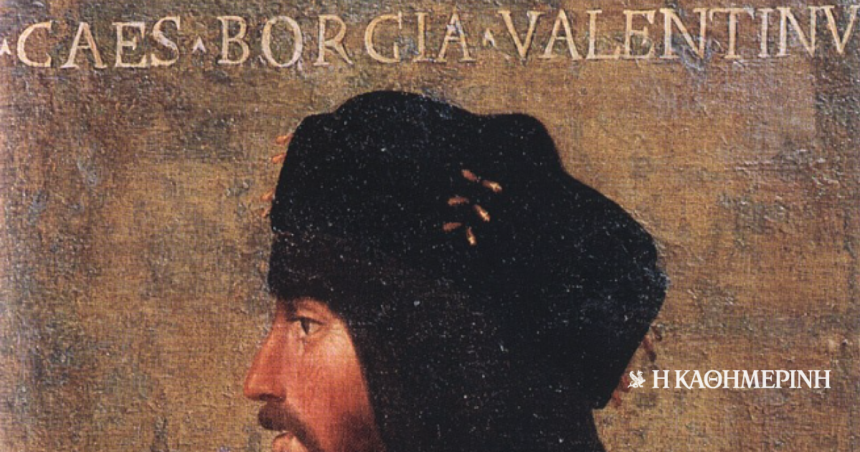January 28, 1495 is a key moment in the hectic history of the Italian Renaissance. On this day, the Caesarson of the infamous Pope Alexander VI, was at the heart of a critical stake.
The year 1495 was full of tensions, as the mosaic of the Italian cities had become a “chessboard” for the European forces. King Charles the France, young and ambitious, had launched a bold campaign to claim the Kingdom of Naples. The French army, reinforced by a state -of -the -art artillery, moved to the south, occupied cities and disturbed the balance of forces.
Rome was right on Charles’ way. Pope Alexander VI, a man extremely capable of surviving in the midst of political unrest, knew that the immediate conflict with France was in no way desirable. Instead, he tried to calm Charles by maintaining his place and trying to save time. The solution that was sculpted? He sent Caesar, his 19 -year -old son and a rising star of the Borgia family, as a papal Legato to accompany the French king. In fact, Caesar’s role as a Legato served to calm Charles And to act as a guarantee for the Pope’s cooperation, ensuring that he would not oppose the ambitions of the French king, nor would he act against his interests.
For Caesar Vorgia, this was not exactly a golden opportunity. Born in one of the most powerful and controversial families in the Renaissance, Caesar had already drawn a course with his ambition and cunning. His “tradition” to Charles I should have looked like a blow, but the 19 -year -old Borgia was not one of those who passively accepted their fate.
As he joined the French escort on January 28, Caesar played his role as a papal envoy, but his sharp mind was probably feverishly planning his escape. Just two days after the journey began, Charles and his accompaniment stopped at Veletri, a small town on the Albanian hills. That night, Caesar disappeared without any trace. The next morning, the French king discovered that the young Borgias had slipped out: he allegedly passed through a hidden passage by a local noble. Disguised as stables, Caesar avoided arrest and escaped under the darkness of the night.
Outraged, King Charles’ men raided Caesar’s luggage to find out that they had been deceived: the wagons, richly decorated to seem to contain valuable load, were only filled with rubbish. The French complaints arrived at Pope Alexander VI, who pretended ignorance and repeatedly apologizedinsisting that he didn’t know where Caesar was. In fact, the latter had fled to Spoleto, where he remained in great secrecy for almost two months.
This incident highlights the complex and unstable nature of politics during the Renaissance. The Borgias, led by Pope Alexander VI, were experts in manipulation. Alexander’s decision to use Caesar as a diplomatic pawn highlighted both his pragmatism and his willingness to use family ties for political gain.
On the other hand, the escape of the young Borgia was a proof of his imagination and boldness. He also marked the beginning of his emergence to one of the most notorious personalities of that time – and not only. In the years that followed, Caesar would depart the ecclesiastical vestments that his father had imposed on him (He became the first man to resign from a cardinal) and would be transformed into a ruthless military leader, creating his own territory in central Italy and inspiring Nicololos Machiavelli to write his iconic work The ruler.
Eventually, the Italian campaign of King Charles I failed, despite the first wins, and resulted in Naples’ retreat later in 1495. For the Bargia, this episode was one of the many in the controversial but impressive family. history. Alexander VI continued to tour the labyrinth of Italian politics, while young Caesar’s adventure implied that his role was to be even more crucial in shaping the Renaissance Italy.
Column Curator: Myrto Katsiera, Vassilis Menakakis, Antigoni-Despina Poumenidou, Athanasios Syroplakis




